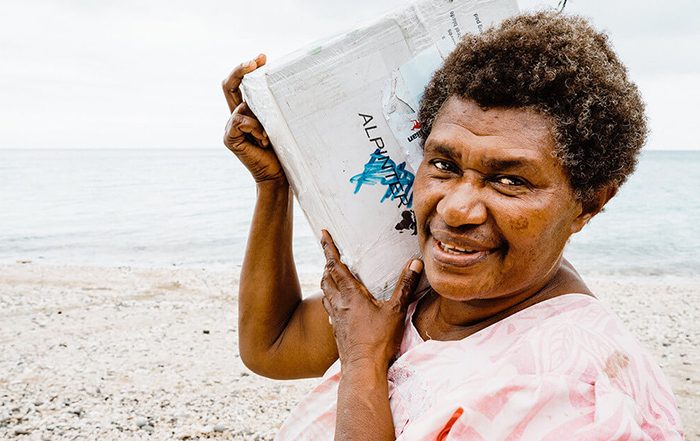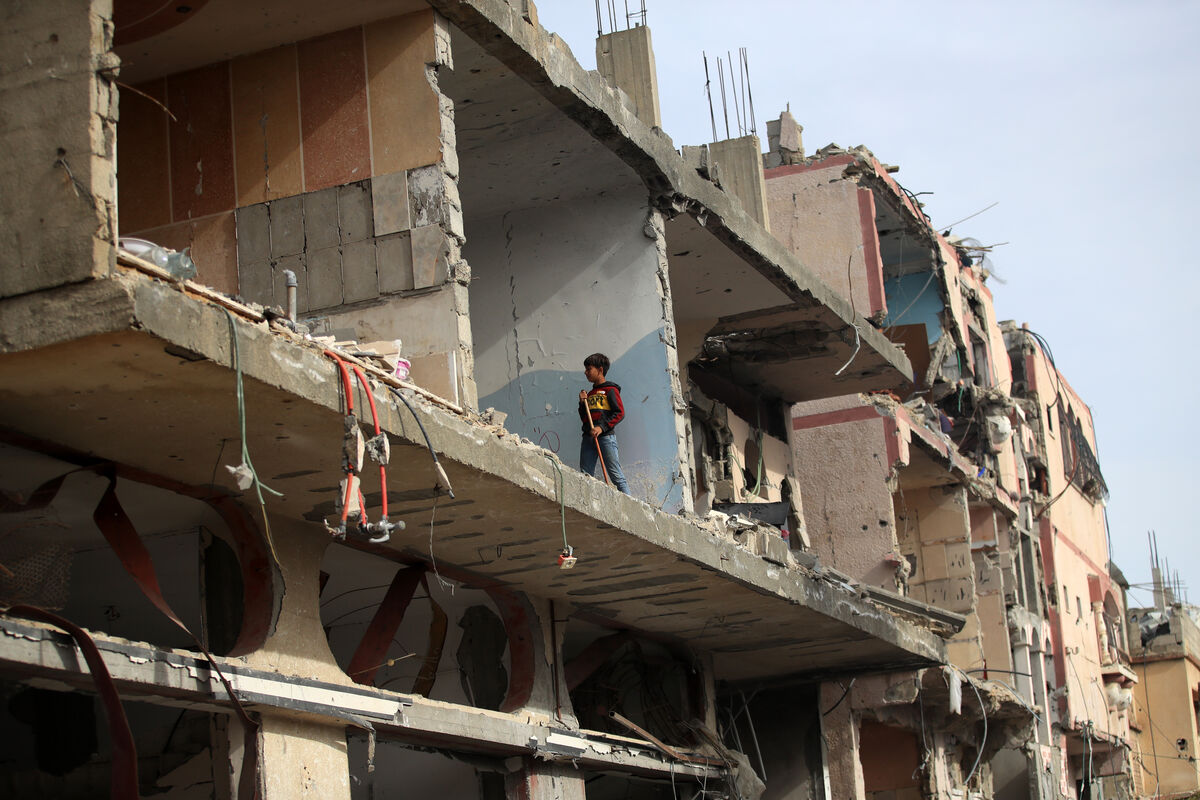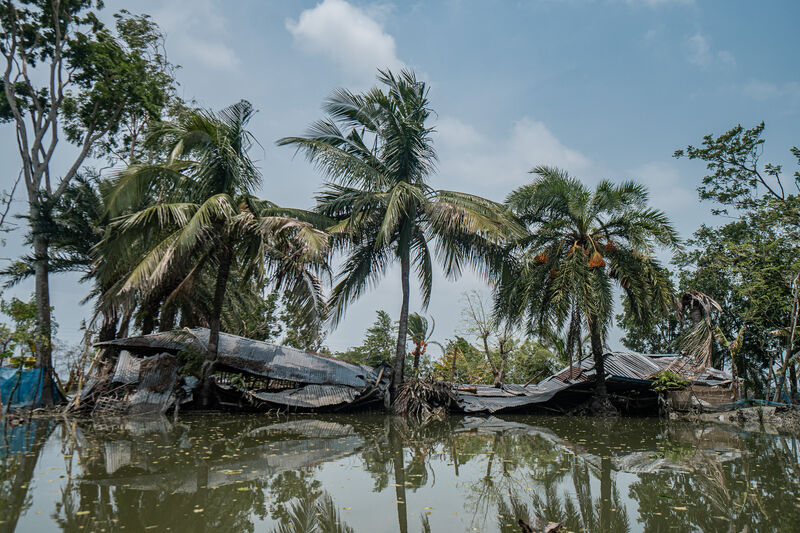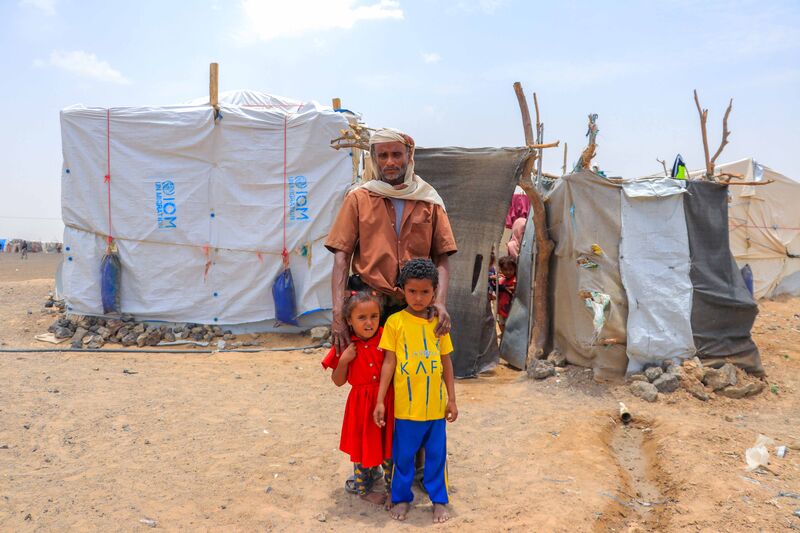
Impact stories
Meet the people your support is helping
In 2024, we reached an incredible milestone: over three million people supported since we were founded in 2000. And that’s all thanks to you, our dedicated supporters, volunteers, and partners.
2024 Annual Report![]()
have been supported since were founded in the year 2000
![]()
supported in 2024 with emergency shelter and other essential aid
![]()
where ShelterBox has provided assistance in 2024 – from Gaza to Yemen.

Last year, conflicts around the world caused major humanitarian crises.
In Gaza and Lebanon, we supported thousands of people fleeing violence. With your support, we are committed to continuing our work in these areas in 2025.
We also provided shelter assistance in Syria, Cameroon, and Chad as people faced another year of conflict. In Syria, we supported people to survive the harsh winter. In Cameroon, we assisted 49,000 people. And we provided shelter to those escaping the conflict in Sudan who sought safety in neighboring Chad.

Extreme weather events hit developing nations hard last year.
In the Philippines, strong tropical storms occurred throughout 2024. Our team in Cebu provided shelter repair items to support families.
In July, Hurricane Beryl displaced thousands in the Caribbean. We provided emergency shelter and essential items to around 3,000 people.
In Bangladesh, we assisted 5,800 people hit by Cyclone Remal and thousands more affected by flooding, thanks to you.

People in Burkina Faso, Ethiopia, Mozambique, Somalia, and Yemen face many challenges. These crises are often overlooked and don’t receive enough funding. Problems include conflict, political instability, and extreme weather.
But with support from our partners, we keep responding.
In 2024, we offered long-term shelter solutions to 9,000 people in Yemen. In Somalia, we provided aid and shelter to around 16,000 people. In Mozambique, we provided items like solar lights, blankets, and mosquito nets. And in Ethiopia, we supported 38,500 people with items like sleeping mats and kitchen sets.

Anarc had spent his retirement in quiet solitude, surrounded by the familiar rhythms of his village in Deluti Union, Bangladesh. At 92, he had lived through storms before, but nothing quite like Cyclone Remal.
In May 2024, the cyclone roared across the low-lying coast, its 75 mph winds and relentless rain leaving a path of destruction. Nearly 170,000 homes were either destroyed or severely damaged—Anarc’s was among them.
As the storm approached, he sought safety in the local government shelter, its concrete walls shielding him from the chaos outside. He sat there, waiting, hoping. When the winds finally died down, he stepped out into an eerily quiet world, the air heavy with loss.
Walking back to his home, Anarc feared the worst. “It wasn’t looking good,” he recalled. And when he arrived, his fears were confirmed—his home had been battered by the storm, reduced to little more than a fragile corner of what once was.
But Anarc did not dwell on despair. With nowhere else to go, he stayed, making the last standing piece of his home his refuge.
Then, help arrived. ShelterBox provided essential shelter materials, tools, and supplies to help Anarc and his community begin rebuilding their lives. With their support, he found not just a way to repair his home, but a renewed sense of security.
“This has given me hope,” Anarc shared. “I can repair my house and live the rest of my life in comfort instead of discomfort.”
For over 50 years, Gloria had built her life on the small island of Petite Martinique. She married her husband in 1970, raising two daughters and three sons in their seaside home. While he worked as a fisherman, she cared for their children and prepared the fish he brought home. Their home was their anchor, a place of warmth and security.
Then came Hurricane Beryl. It was the earliest Category 4 hurricane ever recorded in the Atlantic, and it arrived without warning. “We weren’t fully prepared. This one didn’t give us any notice. It took us by surprise.”
As the winds howled and the rain pounded, Gloria and her sons took shelter beneath their home. “Praise God we have concrete flooring… we could go underneath and get a little shelter there. But the water was still coming in.” For hours, they stood in rising water, waiting for the storm to pass.
When the eye of the hurricane arrived, Gloria stepped outside, trying to grasp what had just happened. “I stood in front [of the house], and my sons said, ‘Mommy, what are you looking for?’ And suddenly, we heard something that sounded like a roaring lion. Then the world turned upside down.”
In an instant, her home was torn apart. “The roof was gone entirely, the windows broken, and parts of the walls inside had collapsed.” Her son’s house next door was also destroyed. “I heard the tumbling of the house. I saw a mattress, a stove, and a fridge floating in the sky.”
At sunrise, the devastation came into full view. “I heard people bawling. Their houses were so damaged. But I couldn’t say a word. I was just standing and looking.”

ShelterBox arrived with relief, providing Gloria and her son with a tent and essential supplies to help them begin rebuilding. “After the hurricane, we had to be satisfied with what we had. We must make ourselves comfortable. This tent is big, and we can use it as a real home. But nothing beats your own house.”
She received a kitchen set and a solar light—small comforts in a time of uncertainty. “It works very well, so bright. Beautiful. It brightens up the whole place.”
Despite everything, Gloria knew what home truly meant. “There is no place sweeter than your home. When you’re in your own home, you feel more comfortable.”

Before the war, Kamel’s life was filled with routine and stability. As a mother of four sons and a daughter, she and her husband worked hard to provide a safe and peaceful home for their children. But that life is now a distant memory.
“You can see how the situation has changed,” she said. “My husband hasn’t worked since the beginning of the war. Life is completely different now.”
When the fighting intensified, Kamel and her family were forced to flee. The warning came suddenly—leaflets ordering them to evacuate, followed by the terrifying sound of rockets and gunfire.“I spent an entire hour carrying the children and running. If we hadn’t held onto each other, we would have been separated by the sheer number of displaced people.”
Now living in a displacement camp, their daily life is a struggle. “We are spending our days in thirst and suffering. We survive on water and the charitable support we receive.” The war has stolen the normalcy of childhood from her children. “Before, the children went to school safely. Today, things are different. My son was injured in the camp shelling last night. Thank God, he has been discharged from the hospital.”
Fear looms over them every day. “Of course, we are terrified. The sky is open, and there’s shelling everywhere — it’s dangerous. Planes are flying overhead, and the whole world knows we are in danger. Where are we supposed to go?”
Amid the uncertainty, ShelterBox, in partnership with PARC, has provided Kamel and other displaced families with tents and essential supplies. It is a small but vital source of relief. “Thank God we found a place to stay that offers us some shelter. This tent definitely came from God. Without it, we would have been sitting in the sun and on the street.”

Victoria and her husband Christopher had built their lives by the water, raising their two young sons in the Nkhotakota region of Malawi. But in February 2024, severe flooding changed everything.
“Before the flood, we lived in the lake land, but after our home was destroyed, we moved further inland.”
The floodwaters swept away their bamboo house, leaving them with nothing. “Our old home was made of bamboo, and it was completely washed away along with all our belongings.” With nowhere to go, the family sought refuge with relatives of the village chief, relying on the kindness of others.
Help arrived through ShelterBox and CARE Malawi, providing a shelter kit and financial aid to help them start over. Victoria and Christopher found a new beginning. “I went to the chief and asked for land. We were given this plot next to where we were being hosted. We will stay in this temporary shelter while we wait to build a permanent home.”
With their own shelter, life began to feel more stable. “This temporary shelter gives us our own home, instead of living with others. The mosquito nets protect us from malaria, and we now have blankets and pots to help restart our lives.”
Determined to rebuild, Victoria and Christopher made a plan for the future. “We used to earn money doing labor work, but with the cash we received, my husband and I will start a small business selling fish from the lake.”
Their new home would not be by the water, where the threat of flooding remained. “We don’t plan to go back to lake land because it will likely flood again. We will build a permanent home here with the money we earn from our new business.”

Josefina, 53, never imagined she would be raising her five children in a primary school. But after violent attacks forced them to flee their home in Cabo Delgado, they joined thousands of other displaced families seeking shelter in Nampula Province, Mozambique.
“We walked 10 miles to reach here,” Josefina shared. “I was afraid my children wouldn’t make it.”
The conflict in northern Mozambique has uprooted millions of lives. As a single mother, Josefina is among the growing number of women leading households after losing everything. Their arrival was met with hardship. “When we first arrived, we didn’t have anything to drink or eat. The following day we were given a food ration. I was glad to have some porridge because I was worried my breastmilk would decrease from hunger.”
Help came through CARE Mozambique and ShelterBox, providing vital household supplies. Josefina’s family received a kitchen set, sleeping mats, solar lights, and mosquito nets—small comforts in an uncertain time. “I like the kitchen set the most,” she said. “I’m happy to have the mosquito net. Now the baby will sleep safely, and I don’t have to worry about malaria.”
Despite the displacement, Josefina refuses to give up. She tends to a small farm, growing sweet potatoes, maize, and vegetables—nourishing her children and holding onto hope for a better future.

At just 15 years old, Ruqiya has already endured years of hardship. Living in Dollow, Somalia, her family has faced relentless droughts, devastating floods, and ongoing conflict. For shelter, they had little choice but to live in a makeshift bull shelter—an insecure and uncomfortable space offering little protection from the elements.
“We used to live together in a bull shelter where we were not comfortable, but now we have got a good house.”
The bull shelter left them vulnerable, especially during storms and flooding. But life changed when ShelterBox and the Juba Foundation provided them with a new, durable mud-brick home. “The difference between the mud-brick house and the bull is security and weather support. The new mud-brick houses solve our problems.”
For Ruqiya, who has mobility issues, the impact of this new home goes beyond comfort—it provides accessibility. Unlike her previous shelter, this house was built with a ramp and handrails to help her move more freely. “I don’t get support from the community, but my aunt helps me. I don’t have any discrimination issues with adults, but children try to make fun of my way of walking.”
Along with their home, Ruqiya and her family received essential items like mosquito nets, kitchen sets, and blankets, helping them rebuild their lives with dignity.
“Thanks to ShelterBox and Juba Foundation for their support. We got this house, and we are requesting livelihood support so that we can stay and live peacefully here.”
Thanks to your support, ShelterBox USA was able to play a key role in the response to Hurricanes Helene and Milton by committing a $100,000 matching grant to the Rotary Zone 33 and 34 Disaster Recovery Fund. As Rotary’s official disaster relief partner, ShelterBox USA worked closely with Rotary’s crisis management team in District 7670, which led local relief efforts in Western North Carolina. Rotary members, deeply rooted in the communities they serve, were uniquely positioned to assess urgent needs and deliver critical aid, including shelter, clean water, hygiene supplies, cookstoves, and sleeping bags to the areas most severely affected. ShelterBox USA president Kerri Murray and Board Chair Matt Gerber packed those vital supplies along with dozens of volunteers. Your generosity helped ensure that immediate support reached families facing the devastating impact of these hurricanes.
Nurta, aged 35, is a mother to five children, three boys and two girls. Once a farmer in her rural hometown in Somalia, she depended on the land and livestock to provide for her family. But years of prolonged drought devastated the region, drying up water sources and killing off crops and animals. As food became increasingly scarce and hunger set in, Nurta made the heartbreaking decision to leave everything behind in search of safety and survival.
Her journey with her children lasted three difficult months. With little access to food, clean water, or shelter, they traveled across harsh terrain, sometimes on foot, sometimes hitching rides, facing exhaustion, hunger, and uncertainty at every turn. Along the way, they were exposed to the elements and had to rely on the kindness of others to survive.
Eventually, they arrived in Baidoa, a city in southwest Somalia that has become a refuge for many displaced families. There, they were able to find some stability, though life remained difficult. Thanks to support from humanitarian organizations, including ShelterBox and the Juba Foundation, Nurta’s family received emergency shelter and household essentials, providing them not only with physical safety but a renewed sense of hope for the future. Now settled, Nurta is working to rebuild her life and create a better future for her children despite the ongoing challenges of displacement.
After Hurricane Beryl struck Carriacou, 65-year-old Lucy was left with the roof torn off her home and most of the walls destroyed. As the full-time caregiver for her disabled son, Lucy couldn’t evacuate to a shelter during the storm. “I didn’t want to go to the shelter, because how [my son] behaves, I wouldn’t be able to take it… So we must stay home, you know, to keep him calm.” She and her family sheltered in the bathroom, the strongest part of the house, as the wind roared outside. “I was just praying and watching the time. When we came out, everything had disappeared around us.”
Thanks to ShelterBox, Lucy received a tent, mosquito net, kitchen set, and a solar light to help care for her son at night. Grateful for the support, Lucy made the space her own. “I got the tent, which I love, so bad… It feels like I’m in the house… my little house, I love it.” Her story is a testament to resilience and the power of emergency shelter to help families begin again with dignity and hope.
After being displaced more than fifteen times in Gaza, Salman now lives in a tent with his wife and daughter in what has been declared a “safe humanitarian zone.” Forced to flee his home in the Turkman neighborhood after it was destroyed, he describes the experience of displacement as one of deep pain and alienation. “My children are segregated in different places. Everyone is scattered… It is a severe level of instability.”
With no consistent access to food, water, electricity, or communication, Salman and his family have endured unimaginable hardship. Thanks to support from ShelterBox and the Social Developmental Forum (SDF), they received a durable tent, bedding, water carriers, and essential supplies—items that have brought them a measure of safety and dignity. “The tent we received is a crucial helping hand… suitable, comfortable, and equipped with proper ventilation,” Salman says.
Despite his losses and separation from loved ones, Salman holds on to faith and hope. “Hope is always there. I have faith in Allah… because the news and the international community don’t really understand what we have been through.”